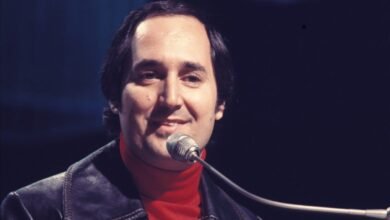Posted on: November 19, 2024, 12:16h.
Last updated on: November 19, 2024, 12:16h.
A casino in Iowa has petitioned the state gaming agency responsible for reviewing new project bids to dismiss a recent application on allegations that it’s seeking to operate slot machines, table games, and sports betting in a county where gambling isn’t authorized.

Attorneys representing the Riverside Casino & Golf Resort have petitioned the Iowa Racing and Gaming Commission (IRGC) to suspend its review of a casino proposal for Cedar Rapids. Riverside lawyers claim the Linn County gaming referendum conducted in 2021 did not authorize the commencement of gambling but simply extended gaming provisions from a 2013 referendum.
Since no slots, tables, or sportsbook presently operate in Linn, the 2021 vote was allegedly much ado about nothing, Riverside challenges. The 2021 Linn County referendum, which supposedly permanently qualified the county for a casino should such a gaming venue be ratified by the IRGC, asked voters if they wish to approve the “operation of gambling games” … to “continue.”
As the IRGC is aware, there have never been licensed gambling games in Linn County. Accordingly, there were no games that the voters could authorize to ‘continue,’” the Riverside Casino petition for declaratory relief argued.
“A proposition requiring the approval or defeat of the continuation of gambling games is not a proposition that authorizes the origination of gambling games in the county,” the petition continued.
Riverside Seeks to Protect Customer Stream
Riverside Casino is located about 30 air miles south of Cedar Rapids where a group of local businesspeople want to build a $275 million resort casino called Cedar Crossing Casino. The Cedar Rapids Development Group has presented the plan in partnership with its charitable arm, the Linn County Gaming Association, and Peninsula Pacific Entertainment (P2E), a Los Angeles-based casino company with vast gaming experience.
Iowa lawmakers and gaming regulators have been unwilling to issue Linn County and Cedar Rapids a gaming concession for over a decade on concerns that a casino in Iowa’s second-largest city would poach play away from current casinos. Riverside would be the closest and therefore most likely to be negatively impacted by Cedar Crossing.
An impact study commissioned by P2E determined that the Cedar Crossing gaming operation would overall increase Iowa’s annual gross gaming revenue (GGR) by $80 million. However, an estimated 26% of the casino’s projected GGR would come from revenue that would have otherwise been won at present gaming establishments.
Riverside would see the largest GGR drop, with a forecasted 11.6% decline in annual casino income.
Casino Plan
The Cedar Crossing Casino blueprint includes a casino floor with 700 slot machines, 22 table games, and a sportsbook. A 1,500-seat concert hall, several restaurants and bars, and a family-friendly STEM lab would complement the casino.
The project would support over 500 full-time jobs, the developers say, and the Linn County Gaming Association would collect 8% of the casino’s gross win. That money would be directed to charitable programs. Iowa’s commercial gambling law requires casinos to direct at least 3% of their gaming revenue to nonprofits.
Along with its petition for declaratory relief, Riverside’s ownership group, Elite Casino Resorts, which also operates Rhythm City Casino Resort in Davenport, is behind a political action committee called Iowans for Common Sense. The organization is opposed to casino expansion in Iowa and recently deployed a marketing campaign encouraging Iowans to oppose more casinos.
Cedar Rapids Mayor Tiffany O’Donnell says Iowa’s casinos have enjoyed record profits in recent years and are trying to “unfairly influence” the IRGC.
I think it’s extremely distasteful that you have hundreds of thousands of dollars being thrown in a campaign meant to circumvent the will of Linn County voters,” O’Donnell told The Gazette. “And I believe Linn County residents see it for what it is, and I believe that the Iowa Racing and Gaming Commission will see it for what it is as well.”
Many state lawmakers support implementing another moratorium on the IRGC issuing new gaming concessions.
Legislation to reimpose a casino licensing ban is expected to be introduced when the Iowa Legislature convenes in January. The IRGC is scheduled to vote on the Cedar Crossing Casino on Feb. 6, meaning lawmakers will need to hurry to get a casino moratorium to Gov. Kim Reynold’s (R) desk before the IRGC might sign off on Cedar Rapids being allocated a gaming permit.
If the IRGC grants Cedar Rapids Development Group a license before the bill’s enactment, the project would be grandfathered into the law.
Source link




